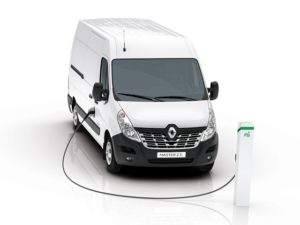A government proposal to levy a ‘green’ tax on home deliveries to subsidise a business rate cut fails to take account of evidence that most home deliveries are far more environmentally friendly than traditional shopping.

That’s the response from home delivery expert ParcelHero, which says that the proposed solution is based on ‘fake news’.
The comments come in response to the Government’s new Housing, Communities and Local Government Committee report ‘High Streets and Town Centres in 2030’, which proposes an online sales tax and ‘green taxes’ on deliveries and packaging. It says the money raised from such a tax could then be spent on a future high street fund and a reduction in business rates.
Commenting on the report, ParcelHero’s head of consumer research, David Jinks, said the firm’s new study reveals the whole premise of the argument that home deliveries are bad for the environment, and should be hit by a so-called green tax, is highly debatable.
He added: “A number of major studies in recent years have found home deliveries create far less CO2 emissions and congestion than shoppers traveling to town centres by car.
“The definitive 2009 academic report ‘Carbon Auditing the “Last Mile”’ concluded that successful first-time home deliveries of non-food products generate significantly less grammes of CO2 per kilometre than a dedicated car shopping trip. The paper found that a typical urban shop by car generates 1,069 grammes of CO2 per km per item, and a dedicated car trip for a specific item 4,274 grammes of CO2 per km.
“In contrast a successful first-time final mile home delivery creates just 181 grammes of CO2 per km per parcel. Astonishingly, the research found that a customer shopping by car would have to buy 24 non-food items to reduce their equivalent emissions to those of a home delivery.”
And the paper also revealed that home deliveries even generate significantly less CO2 than shopping by bus.
Jinks acknowledged that CO2 is not the only key measure of pollution that impacts on urban areas, and highlighted how the ParcelHero study had found the latest Euro 6 diesel delivery vans have now cut NOx by 55% and slashed emissions of sulphur oxide, carbon monoxide, hydrocarbon and diesel particulates.
He also pointed out that many home delivery companies are already starting the move to ditch diesel entirely: “We are already seeing the mass introduction of vehicles such as Banbury-based Arrival’s electric vans. Most leading UK couriers are currently trialling electric vehicles in urban areas, whilst some are also operating hydrogen powered vans. A number of major retailers are even trialling biogas-powered vehicles: a renewable resource derived from food waste. B&Q, Sainsbury’s, Tesco, Waitrose, John Lewis and Argos are among many already using the fuel.’
Jinks concluded: “The Government surely cannot believe shoppers are this ‘green’ about green issues. Consumers will rightly see a new green tax on home deliveries as an unconvincing excuse to fund business rate reductions by making shoppers pay taxes twice.”

